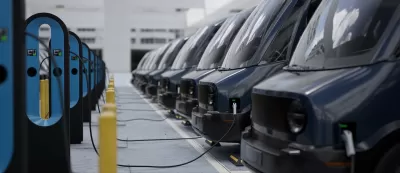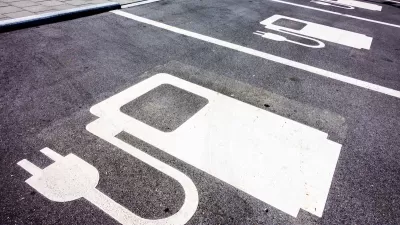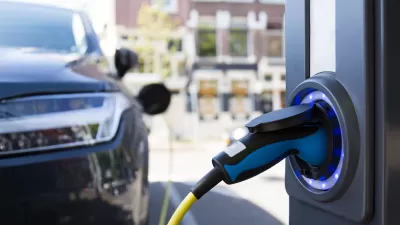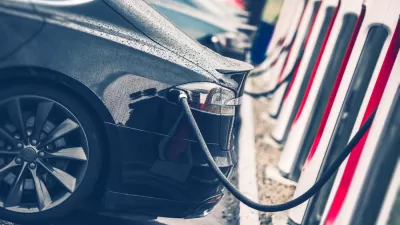Three key strategies — reducing travel distances, increasing energy-efficient travel modes, and transitioning to zero-emission vehicles and fuels — are recommended to meet national climate goals under the Paris Agreement.

The U.S. Department of Transportation (DOT) has released a comprehensive 44-page report to Congress detailing three primary strategies to decarbonize transportation: reducing travel distances for people and freight, increasing the use of energy-efficient travel modes, and transitioning to zero-emission vehicles and fuels. These measures are part of the U.S. commitment under the Paris Agreement to cut greenhouse gas emissions below 2005 levels by at least 50 percent by 2030 and achieve net-zero emissions by 2050. As reported by Dan Zukowski, the DOT report highlights specific actions such as promoting transit-oriented development, investing in public transit and passenger rail, and establishing a national network of electric vehicle charging stations.
Transportation is responsible for 33 percent of U.S. greenhouse gas emissions, with light-duty vehicles, trucks, and buses contributing to 70 percent of these emissions. The DOT emphasizes the need to reduce transportation emissions to near zero to meet national climate goals. The report also addresses the development of lower-emission aviation fuels and shifting freight transport to more energy-efficient rail and maritime modes. To support these efforts, programs like the $5 billion National Electric Vehicle Infrastructure program and the $2.5 billion Charging and Fueling Infrastructure program are highlighted.
Despite the outlined strategies and investments, the report acknowledges challenges, including legal opposition to the Biden administration's 2023 rule mandating declining CO2 emissions targets for transportation on major roads. This rule was struck down by a Texas court, which ruled that the DOT lacked congressional authority to implement it. Nonetheless, the DOT remains committed to using its current authorities and funding to reduce greenhouse gas emissions, as evidenced by the recent transportation and climate symposium in Washington, D.C.
FULL STORY: 3 strategies to decarbonize transportation: US DOT report

Alabama: Trump Terminates Settlements for Black Communities Harmed By Raw Sewage
Trump deemed the landmark civil rights agreement “illegal DEI and environmental justice policy.”

Study: Maui’s Plan to Convert Vacation Rentals to Long-Term Housing Could Cause Nearly $1 Billion Economic Loss
The plan would reduce visitor accommodation by 25% resulting in 1,900 jobs lost.

Planetizen Federal Action Tracker
A weekly monitor of how Trump’s orders and actions are impacting planners and planning in America.

Federal Homelessness Agency Places Entire Staff on Leave
The U.S. Interagency Council on Homelessness is the only federal agency dedicated to preventing and ending homelessness.

Restoring Northern India’s Himalayan ‘Water Temples’
Thousands of centuries-old buildings protect the region’s natural springs and serve as community wells and gathering places.

Milwaukee to Double Bike Share Stations
Bublr Bikes, one of the nation’s most successful, will add 500 new e-bikes to its system.
Urban Design for Planners 1: Software Tools
This six-course series explores essential urban design concepts using open source software and equips planners with the tools they need to participate fully in the urban design process.
Planning for Universal Design
Learn the tools for implementing Universal Design in planning regulations.
Caltrans
Smith Gee Studio
Institute for Housing and Urban Development Studies (IHS)
City of Grandview
Harvard GSD Executive Education
Toledo-Lucas County Plan Commissions
Salt Lake City
NYU Wagner Graduate School of Public Service





























